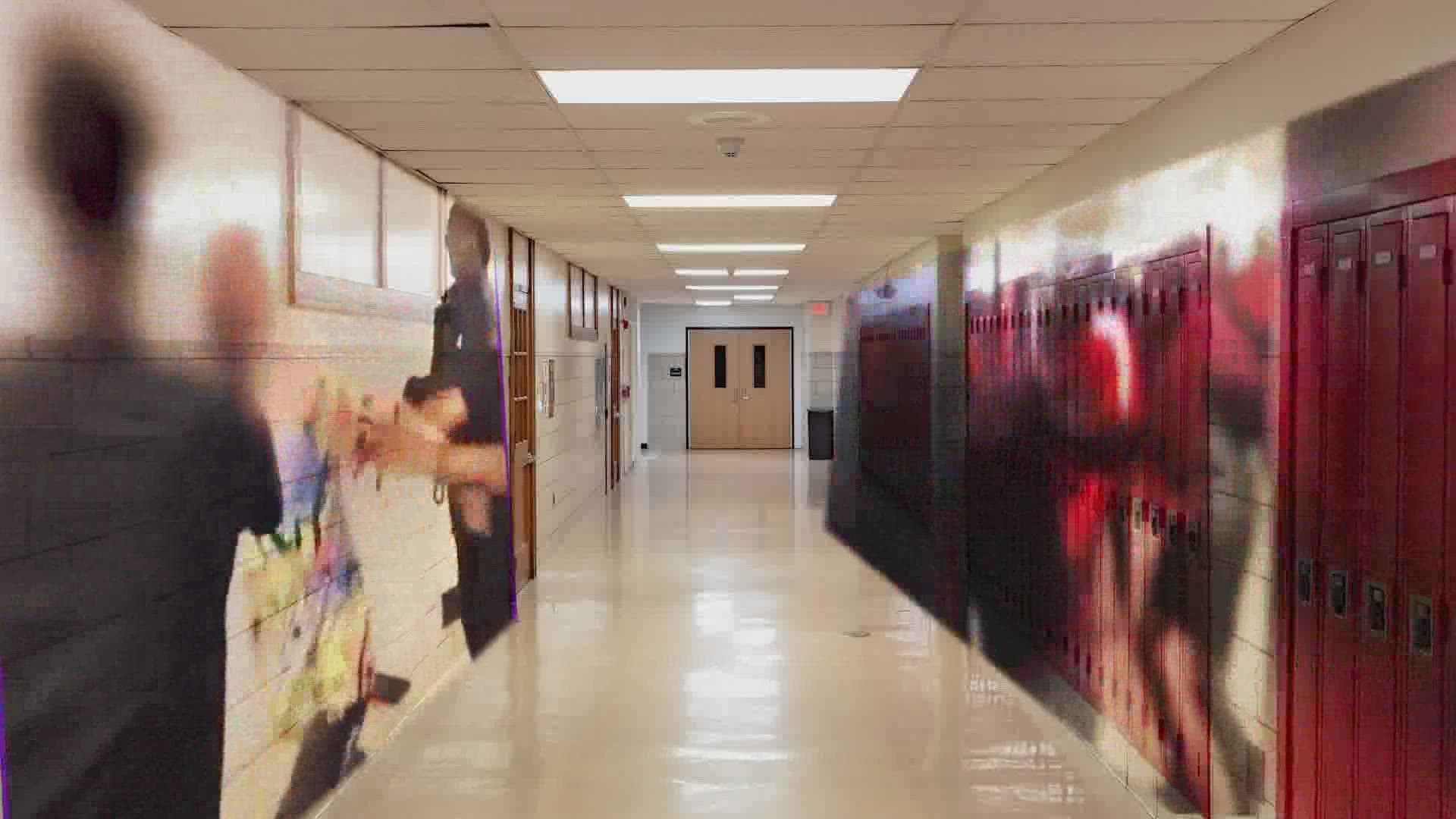HOUSTON — KHOU 11 Investigates spent several months taking a closer look at a big problem in greater Houston schools: fighting. In Texas, it's against the law to expel kids for fighting. Parents who participated in a KHOU School Safety Survey said the policies that are in place are not enough.
In Texas, there are a few consequences for kids who fight in school: detention, suspension or getting sent to an alternative school. KHOU 11 looked at the disciplinary actions taken by Houston-area school districts. We found that the harshest penalty is rarely used.
The fights are happening in hallways, on playgrounds and in classrooms. Parents said it has gotten out of control.
“There’s some serious issues,” Steven Bergman said.
As a teacher, Elizabeth Alanis, who is also a parent of two school-aged daughters, has a front-row seat.
“If I’m worried about what’s going to happen at lunch, or what’s going to happen in the hallway ... what’s going got happen when we get to recess, and there’s not teachers around,” Alanis said.
KHOU 11 Investigates dug into Texas Education Agency data to learn how Houston-area students are disciplined. We found only 5.7% of students caught fighting were sent to an alternative school last year. Most of them, nearly two-thirds, got out-of-school suspensions.
Regardless, the parents who talked to KHOU said neither measure is working.
“Just punishing them ... it’s not the solution,” Samantha Mayorga said.
“If it’s a multi-layered issue, it’s a multi-layered solution. It cannot just be we’re going to suspend you come back here, we’re going to do it all over again,” Alanis said.
Bergman knows that firsthand.
“My son made a couple of trips to the alternative school. It didn’t fix the problems my son was having. It just sent him away from his home campus for a month. He came back to school with the exact same problems he left with. So, that’s not a solution,” Bergman said.
Dr. April Peters-Hawkins is a Professor of Educational Leadership at the University of Houston. She has also worked as a school principal, social worker and teacher. She said she's not surprised by the TEA’s findings. She said harsher punishments, such as expulsion, are not the answer.
“I think we need to think about the policies that we have in place to address students. If students are acting out, there’s a reason. Yes, there are consequences to our behavior. But we need to make sure that those consequences aren’t always exclusionary to students,” Hawkins said.
Hawkins suggests having those students reflect on their decisions.
“Some of the restorative practices that schools are engaged in are important. So, for kids who fight, they’re making restitution by having a conflict-resolution conversation with the person with whom they fought with. Maybe they write a letter, where they get from point A to point B in addressing the issue, but also being reflective in terms of what are the things that influenced me to make these decisions as opposed to these decisions,” Hawkins said.
Hawkins said it's not a one-size-fits-all solution.
“There’s something that escalates all the way up to that fight. So, it’s important to understand what built that, to have your finger on the pulse, to understand what’s happening in the classroom,” Hawkins said.

